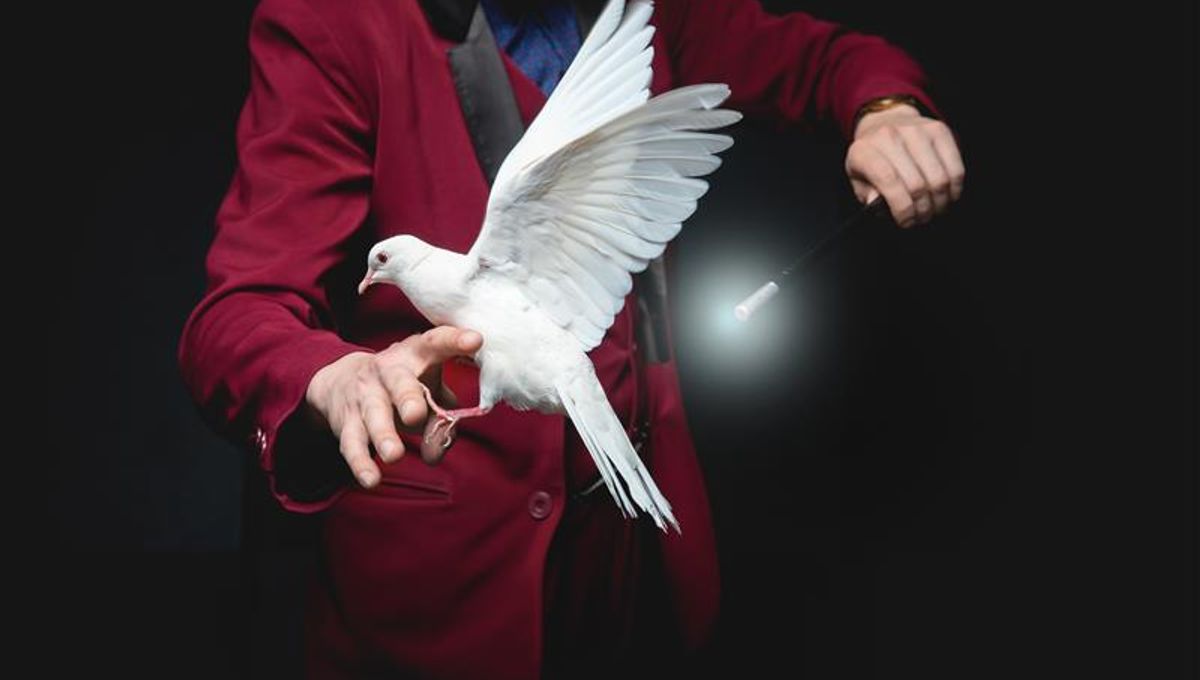
We have all probably heard stories about creative individuals who are brilliant in their field but otherwise haunted by deep inner torment. The late comedian Robin Williams and the iconic painter Vincent Van Gogh are probably among the more recognizable examples. But Is creativity always associated with higher levels of psychopathology? Well, new research has found one profession that seems to buck the trend – magicians.
The connections between mental health and creativity have fascinated researchers for decades. Previous studies have shown that members of creative groups such as comedians, artists, and scientists often score higher on psychotic traits than the “norm”, while STEM (science, technology, engineering, and mathematics) scientists score higher for autistic traits (though it should be noted that the nature of this association is not yet fully understood).
The belief that creative genius and mental illness go hand-in-hand has become quite a controversial trope (the “mad genius” trope), with some even seeing mental disorders as a way to boost creativity.
However, this latest research has found that magician’s mental health, despite the highly creative nature of their profession, scores far lower for some psychiatric traits than the norm.
The research, conducted by Aberystwyth University in Wales, examined schizotypal and autistic traits among 195 magicians and compared them with information from 233 individuals from the general population. The results for the magicians were also compared with other creative groups with respect to schizotypal traits that were published in other studies.
The findings represent a significant ta-dah moment in science. Magicians scored lower than the general population sample on three of the four schizophrenia measures (cognitive disorganization, introvertive anhedonia, and impulsive nonconformity), but did not differ in terms of unusual experiences or autism levels.
The researchers also found that magicians scored lower on schizotypal traits than members of other creative professions.
“Our study demonstrates that not all creative people are created equal”, the authors wrote in their paper. “Magicians scored significantly lower than the general population and other vocational creative groups on most psychopathological traits, particularly those related to schizotypy.”
These results add depth to our understanding of the associations between mental health and creativity more generally.
“[O]ur study demonstrates that the relationship between creativity and psychoticism is more complex and likely to be dependent on the nature of the creative work and the specific skills and characteristics needed to succeed in it.”
The authors added that magicians “also scored low on impulsive nonconformity, a trait that is associated with antisocial behavior and lower self-control. These traits are valuable for many creative groups such as writers, poets and comedians, whose creative acts are often edgy and challenge conventional wisdom.”
“Magicians’ on-stage personalities are also generally affable, as they often need the cooperation of the audience or the help of assistants in performing their magic acts. Having high levels of self-control and being less impulsive are also valuable in magicians’ performances, as they need to be very precise in their work for the tricks to go well.”
“There’s a lot of precision in how a piece is executed. When you see a top magician performing, in every move, every word, there is meaning and thought,” Sara Crasson, a magician who worked on the study, told the Guardian.
The relatively low scores for members of this profession could be beneficial for their work, as a tendency towards psychotic and autistic traits could be counterproductive for their performances and technical skill. Magicians are unusual among creative groups in that they often create and perform their work, whereas other creatives tend to do one or the other.
Equally, magic performances are extremely social, in that a magician needs to not only read an audience but also collaborate with other magicians and assistants, and negotiate relationships with venue owners.
As such, it is possible that this profession self-selects its members, as the authors note, “with aspiring magicians with higher levels of psychotic and autistic traits not being very successful and dropping out, and magicians with traits that offer the best chance of success thriving.”
Interestingly, the researchers also found that magicians’ schizotypy profile was similar to that of mathematicians and scientists.
“The orderliness and persistence associated with the work of scientists may be compared to the work of magicians, who need to practise scrupulously before they go on stage, where they need to be very accurate in their performance. Moreover, just like scientists, magicians endeavor to achieve a specific goal built on many small steps that often can be reached in multiple ways, with varying levels of creativity.”
Despite challenging our ideas about the tormented genius trope, the study has its limitations. Firstly, the magicians who took part were all older professionals, so they may not be representative of all practitioners working today. Moreover, the magicians were relatively older when compared to other creative groups in the study.
Still, the study’s results offer wide-ranging insights that may be useful in various contexts, especially for clinicians.
“There is a common perception among laypeople and clinicians alike that many creative people have mental illnesses, and that such illnesses make them more creative”, the authors conclude. “Our research shows that members of at least one creative group, magicians, do not exhibit higher levels of mental disorders.”
“This finding may be of interest to clinicians in developing new interventions, as it demonstrates that the association between creativity and psychopathology is more complex than previously thought, and that different types of creative work could be associated with either high or low levels of psychoticism or autistic traits.”
The study is published in the Journal BJPych Open.
Source Link: Magicians Challenge Common Belief About Creativity And Mental Health